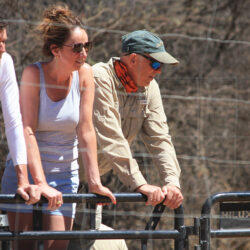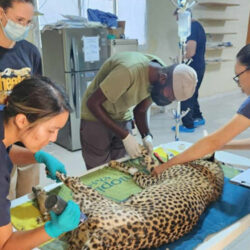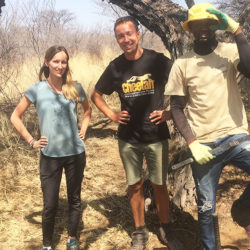Four Weeks in Somaliland at the Cheetah Safe House
-

- by Luciana Rus June 20, 2019
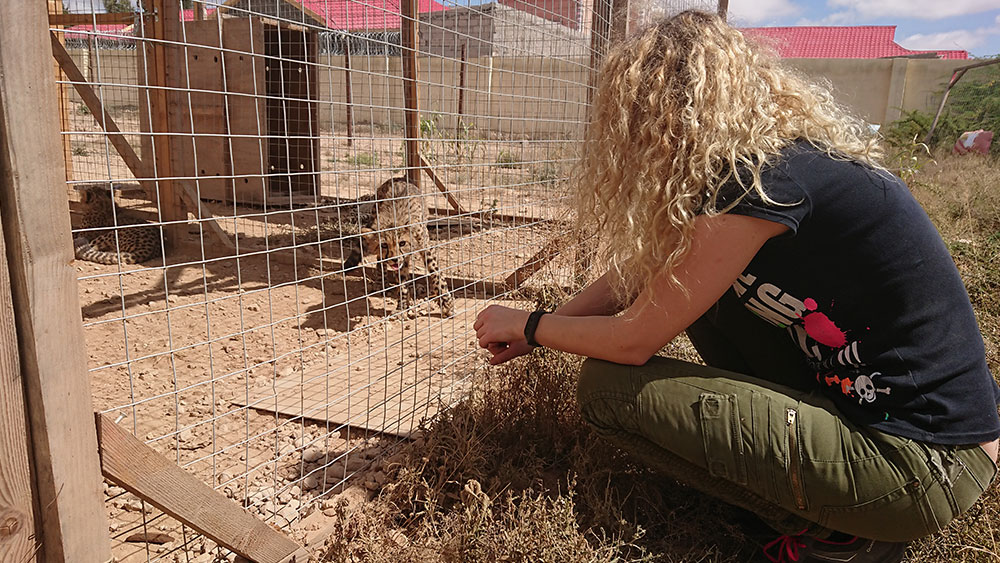
Week 1
I started my trip on November 24, excited, tired and a bit wary at the same time. I had huge baggage that weighed more than half my body weight which I had to drag after me on the narrow stairs of Budapest airport. The first shock, the first nerves, because the escalators, absolutely necessary under these circumstances, did not work.
After several hours of waiting in the airport corridors and a few more hours of flight, I did not draw any specific attention until the moment I was at the end of my queue for the flight to Hargeisa. I climbed the stairs of the aircraft and sat comfortably in the right place when a slender man asked me ironically if I was not on the wrong flight? I realized what the attention was about and put my hand in the bag to find my scarf. My subconscious rebellion ended, I began to obey the rules.
We arrived in Hargeisa; a new shock. Communication was difficult, and I felt like a country girl who repeatedly asks the word “what?”. At the airport, one of the GIZ drivers waited for me. We drove over unpaved roads and I absorbed all the sights which were new and unexpected.
After a visit to the GIZ office, where I was received with open arms, both by Guenther and his colleagues, we reached the “Cheetah House”. Angela was waiting for me on the stairs, smiling broadly. For the first hour I looked at the cheetahs. I went into the shelter of everyone except the “Three Musketeers”. They are not very friendly with people.
I was surprised by the cheetahs’ ability to adapt, how playful and energetic the cubs were, and how well they seemed to understand human behavior. They were here because of people who thought they could get extra income by selling them on the black market to people who wanted a pet cheetah. People who abducted them from the wild and did not care for them.
CCF (Cheetah Conservation Fund) is the organization that is helping to care for these confiscated animals, providing them with medical care, food, time and material resources they need. Unfortunately, the chances that these cheetahs will ever be returned to the wild are minimal, as they are so young when they arrived and so used to people. I have no regrets that I accepted this invitation to help for these animals.
I visited Guenther’s courtyard where some of the confiscated animals are kept. Guenther made sure I was missing nothing during my stay in Hargeisa. Over the course of my stay I had the opportunity to get to know a man with an enormous soul who devotes much of his time and energy to saving the animals.
Thirteen hours a day in the company of the cheetahs and four to six hours per night of sleep, I started to feel fatigue, but at the same time I’m helping.
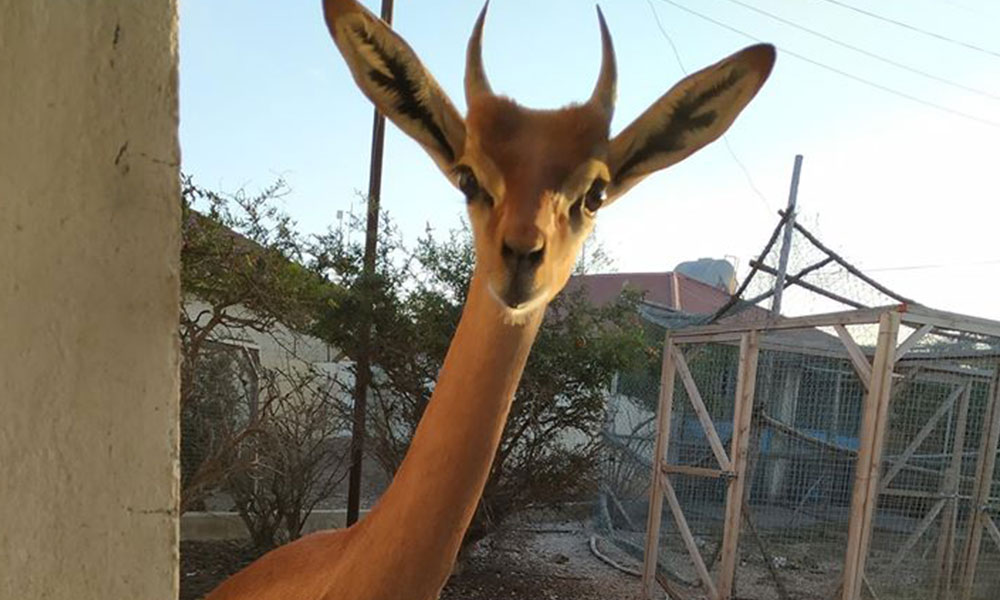
Week 2
I woke up every morning and went to the kitchen for coffee. I drank it in the company of some of the confiscated antelope which are in Guenther’s yard which were always curious. The adult cheetahs in Guenther’s yard, Veepi and Indie, looked indifferent from afar. At 6:50 I set up my hijab and went to work, accompanied by Abdi. I have not yet gathered the courage to venture alone in the almost empty streets of Hargeisa, even if it only takes two minutes to reach the destination to the cheetah ‘safe’ house.
Abdi helped me feed the cheetahs. He seemed to have a better knowledge of their behavior and the required limits when interacting with them. In the enclosure of the “Three Musketeers” he uses a push stick for safety. After we tended to the cheetahs Abdi said goodbye, using the words “Thank you” and “Sorry” as punctuation marks. Our linguistic barrier limited me from getting to know him better.
The two little cubs, Feather and Kidi, waited for the smell of mixed meat with the vitamin supplement. Kidi still consumed milk. Feather, which was one month older than her often need to be separated as their play became too aggressive. Both cubs were in very good condition, although when they arrived here, they needed weeks of intensive care.
I recorded every irregularity. We used both a classic method, the “agenda”, which includes the amount of food served each day, as well as its advanced version, the database.
I awaited Nujuum, CCF’s cheetah keeper, to come back from training in Jordan. I met a lot of new people in Somaliland, with various personalities and purposes, with different visions and perceptions. I was not able to get closer to the locals, although they seem somewhat delighted with the presence of an outsider. I assume that my differing ideology also created a barrier. I took great care of my clothing although I think I would advise females who come here to pack lots of skirts and long dresses.
I intensely prepared for the Saturday lecture at the University of Hargeisa. The Dean seemed very open to new collaborations, but at the same time he was aware of the limited capacity of the university. I met with students and I was surprised by their enthusiasm, their desire to learn, and their involvement. I knew the pathology of the cats, the subject addressed, was not part of their sphere of interest, but I tried to convince them that over the years, things would change and with the growth of economic power, people will look to own domestic pets.
The end of the second week surprised me. With a smile on my lips, I was convinced that I did something positive and that in the next week I would achieve even more. I promised myself I would try harder to discover and understand the habits, lifestyles and ideals of the people here.
Week 3
Nights became colder. I was comfortable with a shirt during the day but would add two more layers of clothes in the evening. Walking back to Guenther’s home daily, the wind pushed me strongly from behind and penetrated my thin spring coat. I walked alone on the street now, accompanied only by my phone light. I walked just 50 meters until I saw the guard in front of Guenther’s house.
I met students twice more in the third week. I fell in love with their lust for life. I explained the veterinary curriculum I was teaching to the faculty and the scoring system, the students’ behavior and the relationship between the teaching staff and them. I noticed that girls’ tendency was to not to interact with boys, not even in teamwork, though, in shyness, they make subtle remarks and laughed in secret. I found that I was delighted by the students for the way I interacted with them. I struggled with a few obstacles in my attempt to bring improvements to the parasitological diagnosis known to the students.
I was now helping Abdi feed the confiscated animals regularly. There were also caracals under our care. These small cats have incredible energy that automatically turned on when they heard their door open. The cheetah cubs Feather and Kidi looked at me every day when I danced around the mop or when I hummed different melodies while filling in the records and databases.
Every task I performed relaxed me, with the voices that were heard a few times a day from the nearby mosques, the sunny moments favorable for photo sessions with the cheetahs, the cool evenings and the winds and quiet nights disturbed only by the donkey’s “song”. A new week, the last one, awaited me.
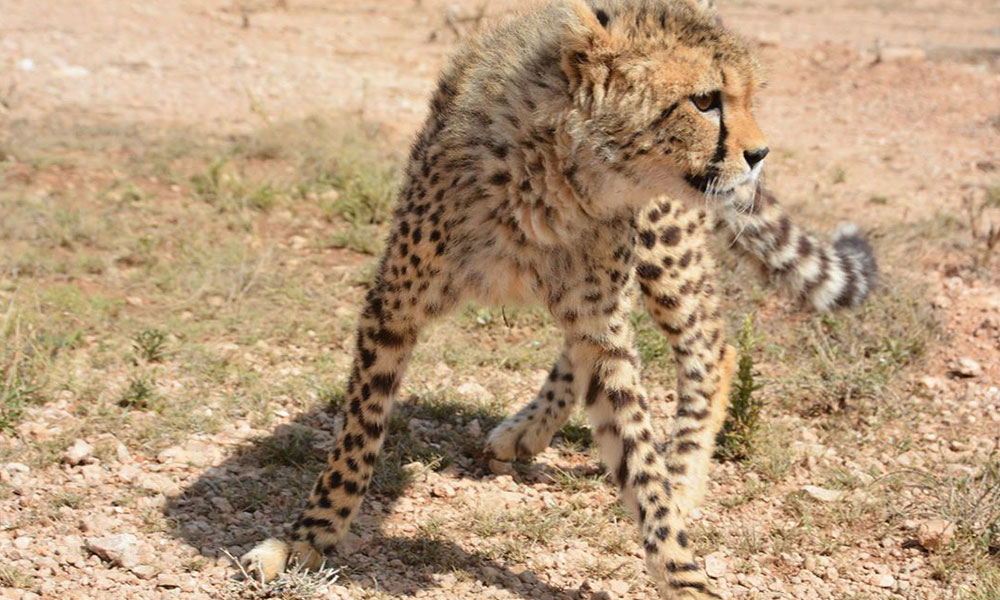
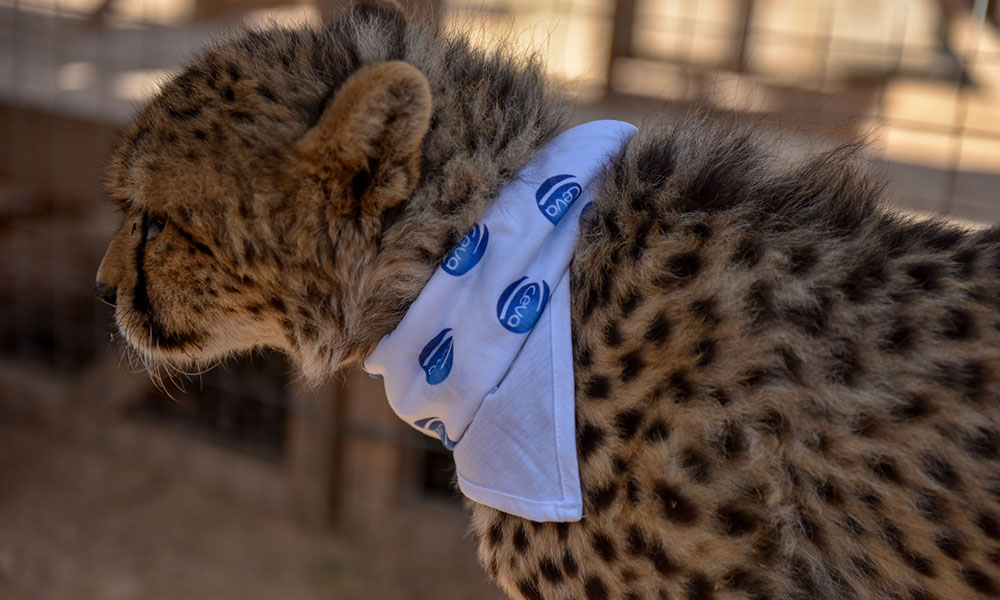
Week 4
Nujuun was tired after her training in Jordan. She is a highly ambitious woman, eager to learn and become the best veterinary surgeon in Hargeisa.
On Monday morning we planned for the next few days, as if we had two weeks instead of one. The OCD in me began to tick off one by one the rows from my imaginary “to do list”, while my voice exclaimed enthusiastically and approved of each of Nujuum’s actions. Being also a last-year veterinary student at the University of Hargeisa, she joined me every time I went with students to the center of town to collect blood samples from stray cats, which was one of my research projects.
Initially, all students seem interested in contributing to the study of vector cat’s diseases in Hargeisa. We had 20 people crowded into two cars to help catch and constrain them these feral cats. I was very pleased with their involvement. We went to various crowded areas of the city center, areas surrounding restaurants or butchers, perfect places that could provide cats with the necessary food. A lot of people were curious about what was happening around the car where we were working. Of all the statements made and translated by the students, the only one that made me stop in my tracks with the syringe in my hand for a few seconds was: “People die in hospitals because of illness, and you are interested in the health of cats?”
Every night we admired the city lights. I started to love Hargeisa in the dark version, where colored ads are the main attraction. I tried different traditional dishes in less spicy variants than those I get at lunch during the week or from Abdi, who cooked on weekends.
On Friday, I prepared myself for my flight home. Nujuum invited me to a traditional lunch with her family. I was received with open arms, as every time I stepped into her parents’ home. I left my European airs at the door, I sat on the floor around the table and assumed my Somali attitude and used my fingers as a fork like the rest of the world. Then we rushed off to finish the next task from the to-do list. That evening we ate our last dinner together, accompanied by everyone who had helped me on my stay. I was excited when to think it was over and ready to return to winter at home. I will miss all the life in Somaliland.
Related Reading
-
March 1, 2024
My Hands-On Conservation Experience with CCF -
September 27, 2022
A Biologist and Photographer’s Dream

